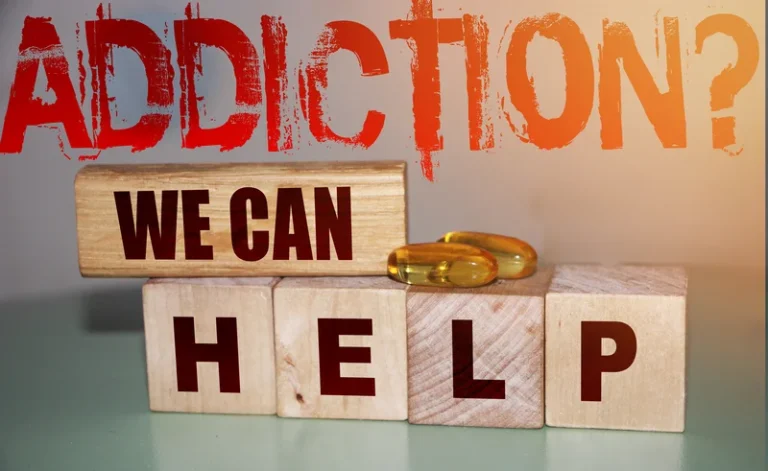By test June 4, 2024

The combination of traditional treatments with a holistic approach focuses on the mind, body and spirit. Begin recovery from alcohol addiction and contact us today to learn more about our comfortable environment for healing. Furthermore, combining caffeine and alcohol can lead to poor decisions due to the contrasting effects of the substances on the nervous system. It’s crucial to understand that sobriety cannot be rushed and that the body requires time to process and eliminate alcohol.
We are here to help you get your life back.
Nothing can speed up this process—not even coffee or cold showers. A classic misconception – that some people can handle their booze better than others. While it may seem like those who can knock back several drinks without stumbling are in control, it’s not necessarily a sign of lower alcoholism risk. In the United States, one alcoholic or “standard” drink contains the same amount of alcohol—roughly 14 grams. So one 12-ounce can of beer, one 5-ounce glass of wine, or one 1.5-ounce shot of liquor are all equally intoxicating. Those who maintain that they can hold their liquor, meaning that they can drink larger amounts with fewer apparent effects, may drink in excess to feel intoxicated.
- In addition, drinking while on certain medications can be dangerous.
- This study looked at alcohol consumption and its effect on human beings in 195 countries from 1990 to 2016.
- But during the night, as you metabolize the alcohol and its effects wear off, it definitively disrupts your sleep quality.
- Use of this website and any information contained herein is governed by the Healthgrades User Agreement.
MYTH: I drank as a teen and turned out fine, so it’s okay for my teen to drink.
While it’s true that you might be able to drink liquor faster than beer, what really matters is how much actual alcohol is in your system, not the type of beverage. But even people with a clean bill of health, or who are not carrying a child, should think twice before having a drink. While many studies have suggested that a moderate amount of alcohol has health benefits, much of that research has been called into question. In fact, a massive study on the global burden of disease, covering 195 countries over more than 25 years, recently determined that there is no safe amount of alcohol.

Myth 8: Alcohol only hurts your liver
Also, there may be various genetic factors that come into play as to how individuals react to drinking alcohol and whether they are vulnerable to addiction. Cultural norms would have you believe that drinking is integral to certain activities, like a wedding reception, football game, brunch or night out on the town. It’s important to be aware that alcohol doesn’t have to be a part of those things, Dr. Oesterle https://ecosoberhouse.com/ says. This belief really took hold when a few studies came out years ago stating that there was a correlation between red wine and fewer deaths from cardiovascular disease, sometimes attributed to the antioxidants in red wine. You don’t necessarily need to be drunk for alcohol to affect your decision making abilities. And when your ability to make decisions is impaired, you’re no longer in control.

Myth: Eating a big meal before you drink will keep you sober.
Some alcoholics do have to lose everything before they get better. It’s not necessary to wait until things are “bad enough” to ask for addiction therapy. Ready to learn more about the real effects of drugs and alcohol? There is a widespread belief that alcohol has a warming effect on the body, particularly in cold environments. Take our short alcohol quiz to learn where you fall on the drinking spectrum and if you might benefit from quitting or cutting back on alcohol. While a person may prefer one type of drink over another, once alcohol reaches your bloodstream there’s no difference.
- In fact, drinking can affect other parts of your body as well.
- The symptoms range from generalized discomfort to more severe consequences such as absenteeism and even emergency department visits.
- Many people may believe the myth that loading up on bread, heavy foods, or even drinking coffee will lower your blood alcohol level.
- The darker hues are thought to signify higher flavonoid content in beers and higher polyphenol content in wines.
- Rapid eye movement (REM) sleep is also vulnerable to the effects of alcohol, which is why you’re more likely to wake up at 3am—that’s when you typically shift from more deep sleep cycles to more REM sleep cycles.
- However, that pleasure quickly can quickly evolve into feelings of nervousness and anxiety.
Common Myths About Alcohol
Eating before drinking can slow your body’s absorption of the alcohol, but it can’t prevent you from getting drunk. Some folks think of light beer as healthier because it tends to contain fewer calories and a slightly lower alcohol content. But those qualities don’t necessarily make it a healthier choice. Also, not many people realize that it can be extremely dangerous to take acetaminophen while having even just a few drinks, according to American Addictions Centers.
It will have severe effects on the body, which can eventually be fatal if nothing is done to treat the problem. In fact, alcoholics have great willpower, as they are often able to hold down jobs and get through a normal day while being hungover. A different sickness could easily keep a person home from work. When you call our team, you will speak to a Recovery Advocate who will answer any questions and perform a pre-assessment to determine your eligibility for treatment.
- Others might develop a tolerance for alcohol over time and need more of it to feel its effects.
- Intoxicated people are more likely to injure themselves or get into accidents.
- We’re ready to make sure you have the support you need to achieve lifelong recovery.
- Since alcohol affects multiple major organ systems, drinking in excess increases the possibility of health problems in all parts of the body.
- It is another myth, then, that you can’t die from alcohol withdrawal.
Dr. Oesterle leads Mayo Clinic’s inpatient rehabilitation program for addiction and says he often sees alcohol use become a problem for people after they retire. When these people were employed, they may have been too busy to consume copious amounts of alcohol. But without a routine or daily responsibilities, alcohol use can more easily spiral, he says. In addition myths about alcoholism to affecting the liver, alcohol affects the brain, the heart, and both the central nervous system and the peripheral nervous system. Receive free access to exclusive content, a personalized homepage based on your interests, and a weekly newsletter with topics of your choice. However, there’s limited research showing the efficacy of this form of treatment.
If eligible, we will create a treatment plan tailored to your specific needs. If The Recovery Village is not the right fit for you or your loved one, we will help refer you to a facility that is. In fact, research has shown that there is no chemical interaction between beer and liquor that exacerbates hangover symptoms. If you are intoxicated, the only thing you can really do is hydrate yourself and wait it out. Luckily, we’ve asked one of our very own alcohol research experts, Andrew Misell, to bust some of the more common misconceptions around alcohol and give us the full picture.
